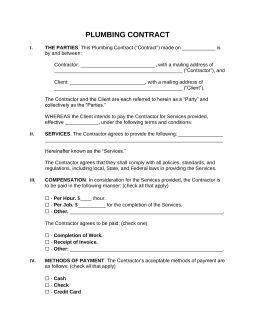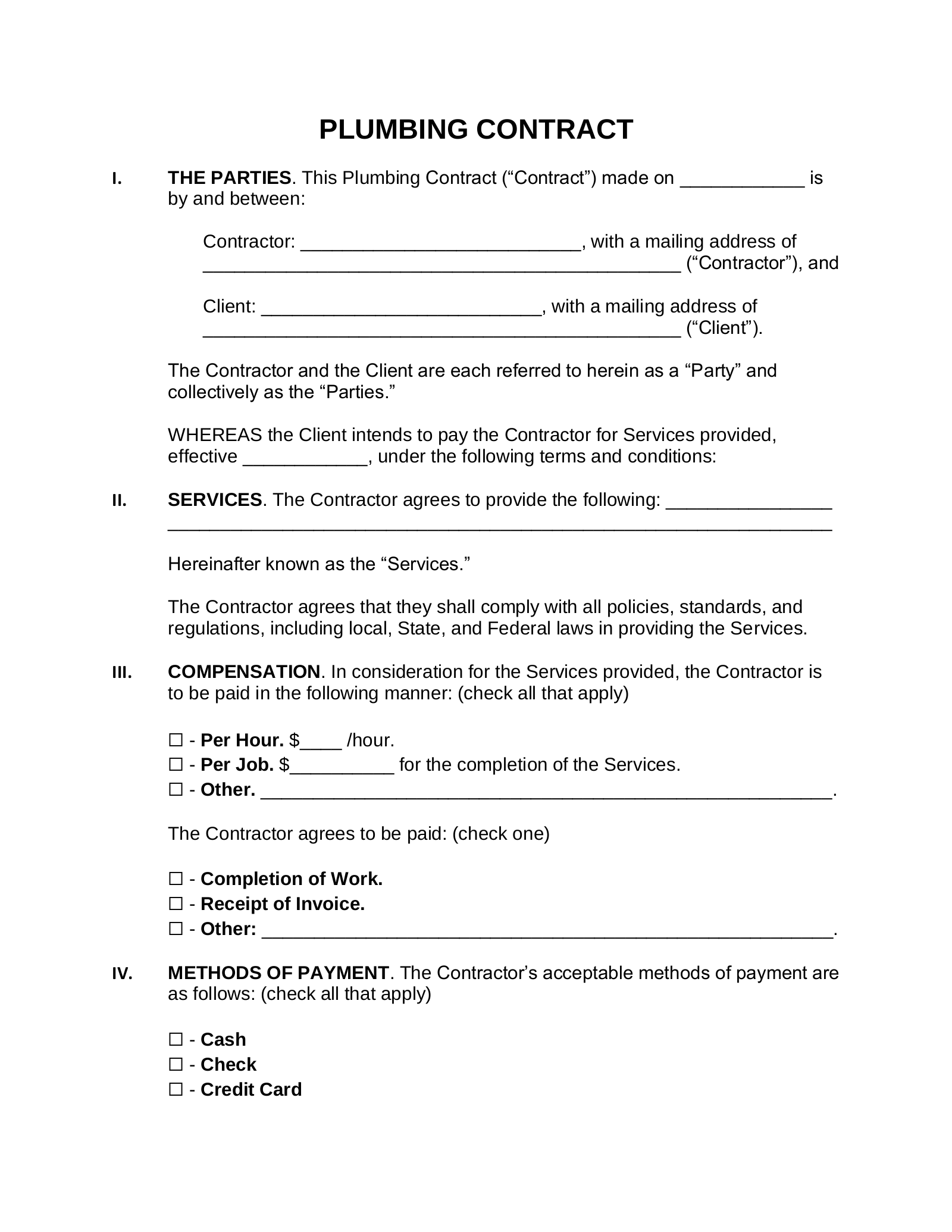Updated November 28, 2022
A plumbing contract is a legal document outlining the terms and conditions of a specific plumbing job. The contract binds a plumbing contractor and a customer into a formal agreement that covers the scope of the work, what happens in the event the contract is terminated, and how payment will be handled, among other details.
Common Plumbing Services
- Faucet repair
- Toilet repair
- Drain snaking/cleaning
- Pipe repair and replacement
- Water heater repair
- Garbage disposal unclogging
Table of Contents |
What Should Be Included?
1. Scope of Work
This section of the contract lays out the services the plumber will render in exchange for payment. It’s helpful to be clear and thorough here so as to mitigate the risk of a dispute with a customer over an unanticipated charge. Be sure to include specific services and their itemized costs, and state who is responsible for cleaning up the worksite and when.
2. Permits
Include any pertinent permits, as these will require extra work to obtain. Check with the local building department to understand which plumbing jobs require permits in the city where the work is being performed. Outline in the contract who will be responsible for sourcing and paying for the permit.
3. Equipment
It’s common for plumbers to include in their contracts space to fill in which pieces of equipment are used for a job. This can help to explain and justify the cost of a particular service.
4. Timeline
Determine whether the contract will cover a single job or visit, or whether it will extend over a period and encompass regular maintenance. If the latter, be specific about how often maintenance will be provided.
5. Payment
A plumbing contract should cover the terms of payment and payment methods. It should also include the cost of materials and labor, which can be attached to a schedule. Include a deadline by which payment should be received and outline the steps that will be taken in the event of late payment or non-payment.
6. Insurance
Working with pipes and near gas lines can be risky business, particularly on someone else’s property. This is why most states require plumbers to have insurance. It’s important for a plumbing contract to anticipate risks and outline who is liable for what. Make sure the contract also states which types of insurance the contractor is covered by, whether it’s general liability insurance, workers’ compensation insurance, pollution liability insurance, or umbrella liability insurance.
7. Termination
A plumbing contract should explain what will happen if either party terminates the contract and state how much notice should be given.
Common Plumbing Rates
Smaller plumbing jobs, which tend to cost between $125 and $350, include:
- Fixing leaky pipes
- Snaking clogged drains
- Repairing toilets
Larger plumbing jobs, worth up to $800, include:
- Fixing burst pipes
- Installing a sump pump
- Repairing a septic tank
Should a Plumbing Contract Include Licensing Information?
In a word, yes. While requirements for licensing vary by state, plumbing contractors usually need a license, especially for larger jobs. Plumbing intersects with health and hygiene regulations, so it’s important for plumbing contractors to be familiar with their state’s licensing laws. A contract should include licensing information, which acts as proof that the contractor meets all required standards, regulations, and codes.


